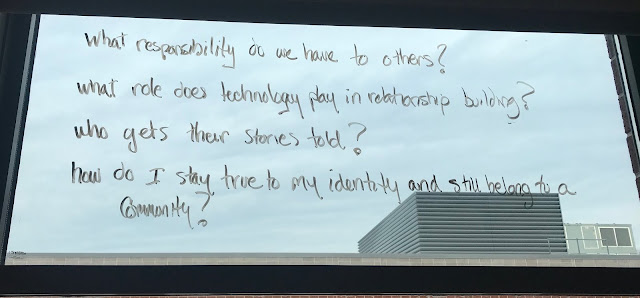Note that these are
only a few methods of literary criticism. For more information, see the
Introduction to Modern Literary Theory at http://www.kristisiegel.com/theory.htm.
New
Historicism
New Historicists argue that the best framework for
interpreting literature is to place it in its historical context: what
contemporaneous issues, anxieties, and struggles does the work of literature
reflect, refract, or try to work through? New
Historicist criticism tries to relate interpretive problems (such as why Hamlet
doesn't kill Claudius as he prays) to cultural-historical problems (such as
contemporaneous debates about purgatory, transubstantiation, and salvation, as
well as anxieties about what constituted legitimacy in the church, the
monarchy, and succession to the throne). New
Historicists also tend to stress that authors and poets are not secular
saints--that even though they may be more circumspect about their societies
than the average citizen, they nonetheless participate in it. Consequently, New
Historicist critics often point out places in artists' work where their
attitudes do not anticipate our own, or may even be distasteful to us.
Marxism
A sociological approach to literature that views works of
literature or art as the products of historical forces that can be analyzed by
looking at the material conditions in which they were formed. In Marxist
ideology, what we often classify as a world view (such as the Victorian age) is
actually the articulations of the dominant class. Marxism generally focuses on
the clash between the dominant and repressed classes in any given age and also
may encourage art to imitate what is often termed an “objective” reality. Contemporary
Marxism is much broader in its focus, and views art as simultaneously
reflective and autonomous to the age in which it was produced.
New
Criticism
The New Critics were united in an effort to free literary
criticism from what they regarded as fallacious interpretations, including
assessments of value and meaning based on impressionistic, emotional, and
historical criteria. They insisted on the autonomy and uniqueness of the text,
whose language could be clinically described only by reference to itself—not to
the author's biography or to abstract concepts such as genre.
Feminism
Feminism might be categorized into three general groups:
- theories
having an essentialist focus (including psychoanalytic and French
feminism);
- theories
aimed at defining or establishing a feminist literary canon or theories
seeking to re-interpret and re-vision literature (and culture and history
and so forth) from a less patriarchal slant (including gynocriticism,
liberal feminism);
- theories
focusing on sexual difference and sexual politics (including gender
studies, lesbian studies, cultural feminism, radical feminism, and
socialist/materialist feminism).
Further, feminist critics believe that women (and men) need
to consider what it means to be a woman, to consider how much of what society
has often deemed inherently female traits, are culturally and socially
constructed.
Psychoanalytic
Psychoanalytic criticism refers to the application of
specific psychological principles (particularly those of Sigmund Freud and Jacques Lacan) to the study of
literature. Psychoanalytic criticism may focus on the writer's psyche, the
study of the creative process, the study of psychological types and principles
present within works of literature, or the effects of literature upon its readers.
Structuralism
In literary
theory, structuralism is an approach to analyzing the narrative
material by examining the underlying invariant structure. Structuralists
posit that literature is an individual instance of a larger system of language
and structure; literature is a special kind of language use that has its own
rules and conventions which govern how individual works are formed.
Structuralists study sets or genres to determine the rules that govern them; an
example is Propp's eight actions in the fairy tale. They divide the work up
into lexie or divisible components based on functional codes to do with the
plot, suspense, character development, social knowledge, and themes.
Siegel,
Kristi. “Introduction to Modern Literary Theory.” kristisiegel.com. 13 March 2008. Web 25 Jan 2009.



No comments:
Post a Comment